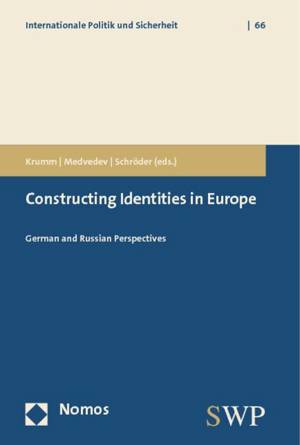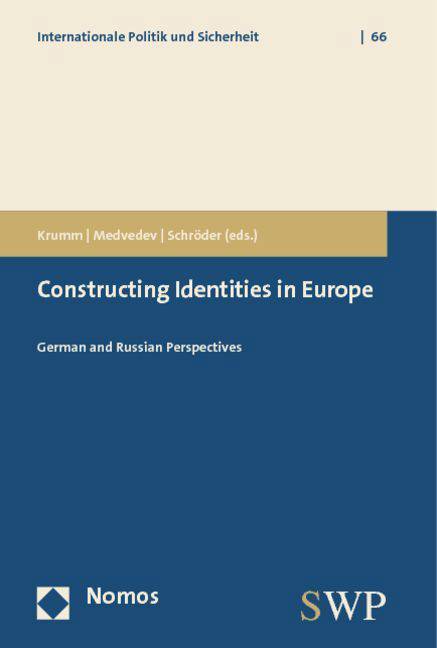
- Afhalen na 1 uur in een winkel met voorraad
- Gratis thuislevering in België vanaf € 30
- Ruim aanbod met 7 miljoen producten
- Afhalen na 1 uur in een winkel met voorraad
- Gratis thuislevering in België vanaf € 30
- Ruim aanbod met 7 miljoen producten
Zoeken
Constructing Identities in Europe
German and Russian Perspectives
€ 38,45
+ 76 punten
Omschrijving
Russia and the European Union are neighbours. Historically, economically and culturally the two have been closely linked. Nonetheless, Russia and the EU still struggle to find a common language. Suspicions rooted in the decades of confrontation between East und West have not yet been overcome. Perception patterns and conceptions of identity that were formed in the course of years thus have a lasting effect on EU-Russia relations. The present volume aims at disentangling these perception structures: The development of conceptions of "self" and "other" within Germany and Russia is explored, as are the inter-cultural discourse between the two countries, the evolution of enemy images and differences in their value systems. In addition to historical analysis, investigations of German and Russian media and interviews with representatives of German and Russian elites supply the data to examine the perception patterns each side exhibits. The volume demonstrates that only such an approach can provide the necessary background for a critical discussion of EU-Russia relations.
Specificaties
Betrokkenen
- Uitgeverij:
Inhoud
- Aantal bladzijden:
- 250
- Taal:
- Engels
- Reeks:
- Reeksnummer:
- nr. 66
Eigenschappen
- Productcode (EAN):
- 9783832972219
- Verschijningsdatum:
- 30/01/2012
- Uitvoering:
- Paperback
- Formaat:
- Trade paperback (VS)
- Afmetingen:
- 153 mm x 227 mm
- Gewicht:
- 339 g

Alleen bij Standaard Boekhandel
+ 76 punten op je klantenkaart van Standaard Boekhandel
Beoordelingen
We publiceren alleen reviews die voldoen aan de voorwaarden voor reviews. Bekijk onze voorwaarden voor reviews.










